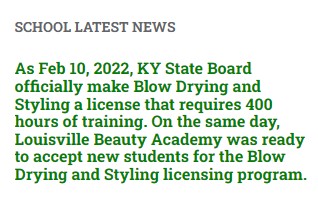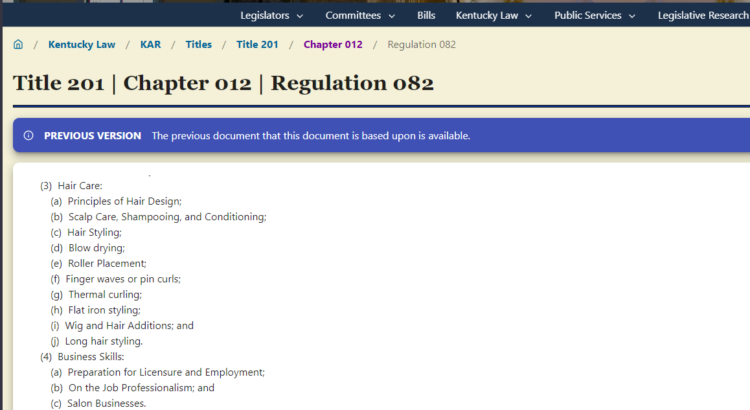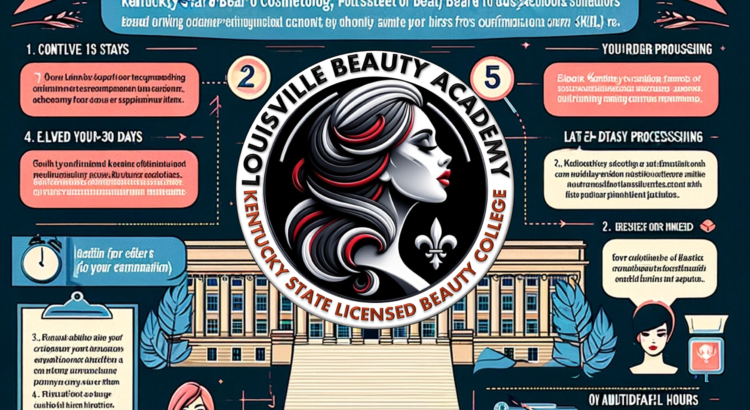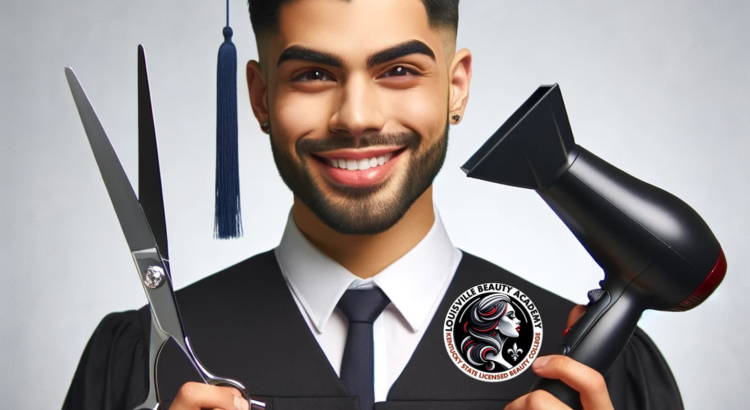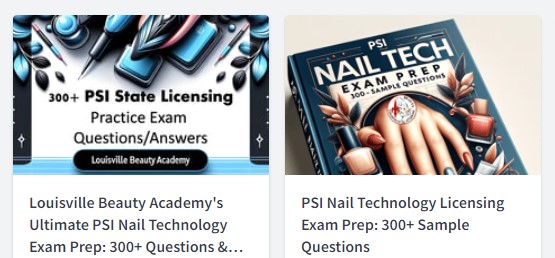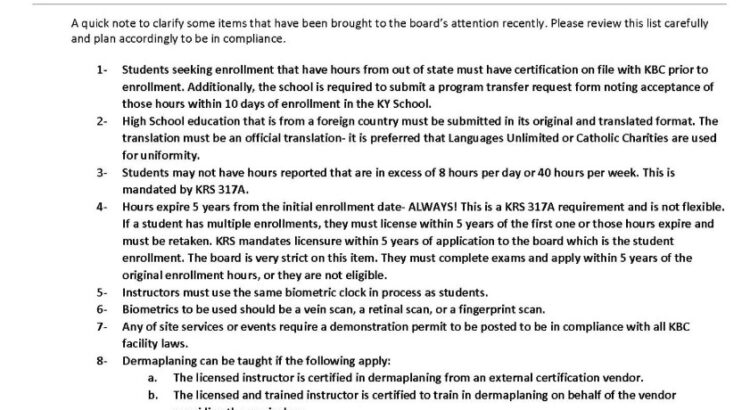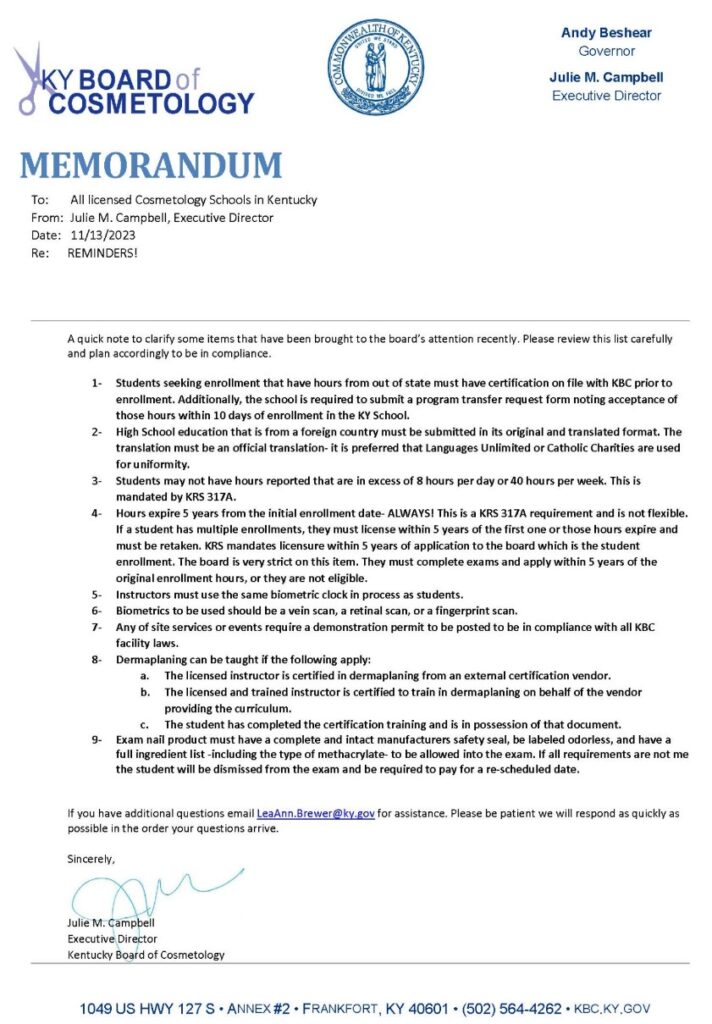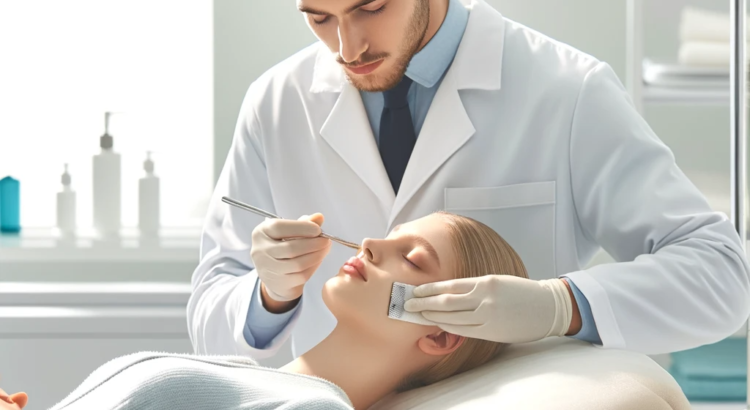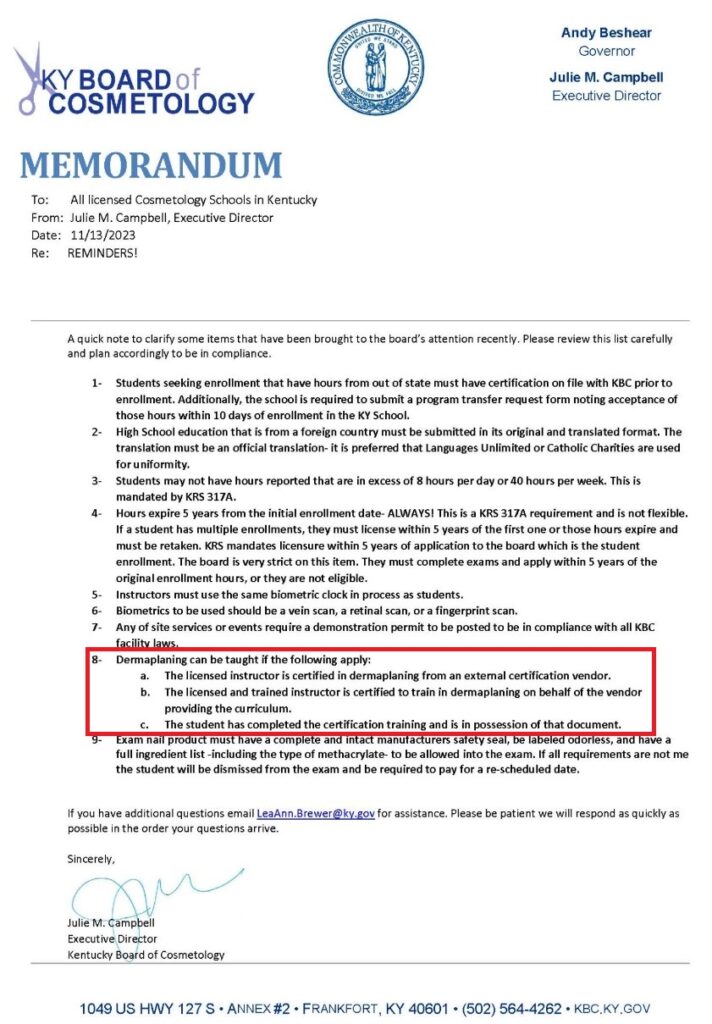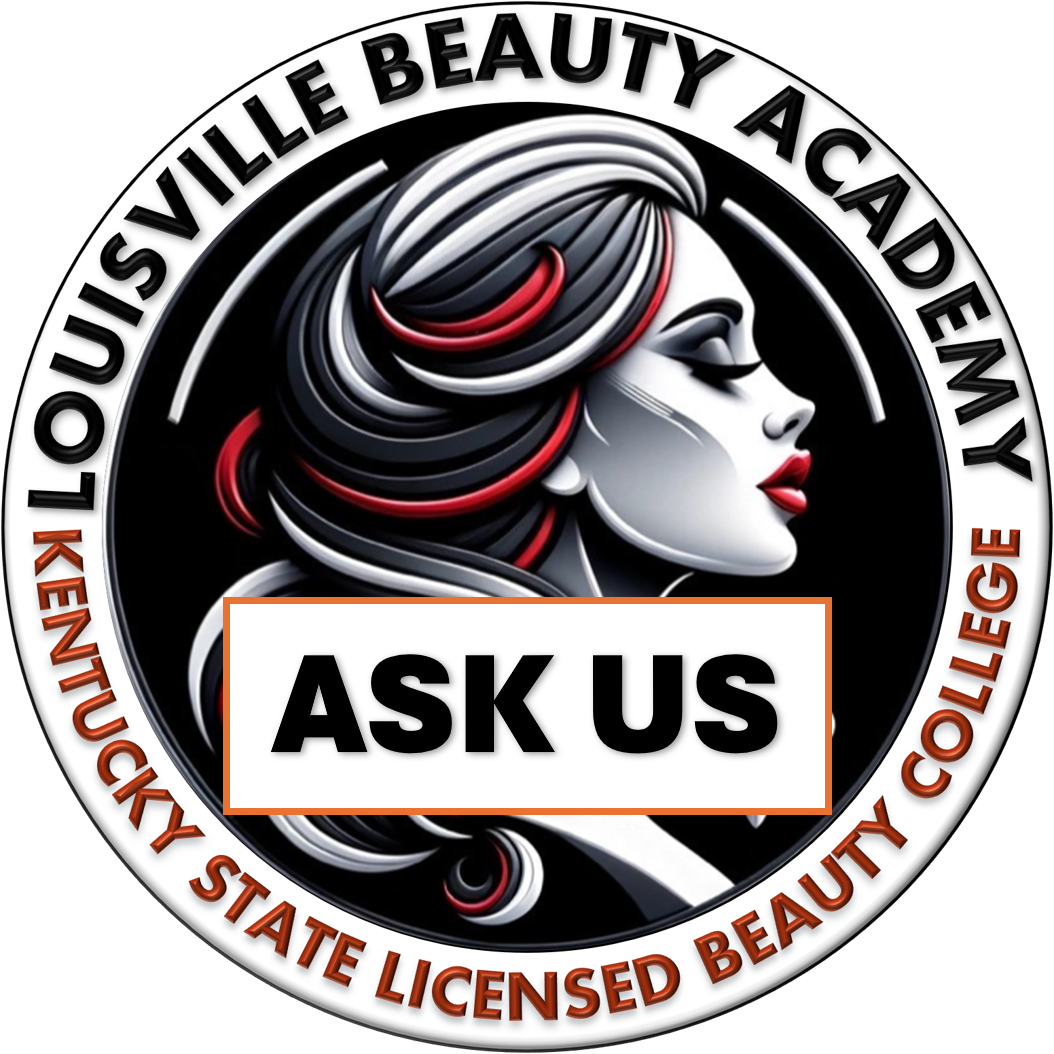As of January 10, 2024, Louisville Beauty Academy, a premier state-licensed and state-accredited beauty college in Kentucky, is once again at the forefront of compliance with state regulations. The Kentucky State Board of Cosmetology has recently amended its licensing requirements, impacting the scope and duration of various beauty programs.
Back on February 10, 2022, the Kentucky State Board officially mandated a 400-hour training requirement for acquiring a Blow Drying and Styling license. Louisville Beauty Academy, always in step with regulatory changes, promptly introduced a program to accommodate this new requirement.
However, in a significant turn of events, the Board has recently revised this mandate. The license, previously known as Blow Drying and Styling, has been renamed to “Shampoo Styling” and the required training hours have been reduced to 300. This change, effective as of the new year, aligns with the Board’s continuous efforts to refine educational standards in the beauty industry.
Louisville Beauty Academy has promptly updated its curriculum to reflect these changes. The Shampoo Styling program now includes a comprehensive range of topics, as outlined in the Board’s amended regulation 201 KAR 12:082. The curriculum encompasses basics like history, career opportunities, and professional image, as well as practical skills in hair care, including principles of hair design, scalp care, shampooing, conditioning, and various styling techniques.
This adjustment is part of a broader regulatory framework set by the Kentucky Board of Cosmetology, which governs the educational requirements and administration of beauty schools across the state. The Board’s regulations cover extensive ground, from specific subject areas in cosmetology, esthetics, and nail technology to detailed stipulations regarding instructional hours, supervision, student records, and certification processes.
Louisville Beauty Academy’s commitment to adhering to these regulations underscores its dedication to providing top-quality education in the beauty sector. By continuously updating its programs in line with state laws and requirements, the Academy ensures that its students are not only well-prepared for their careers but are also compliant with the latest industry standards and practices.
For aspiring beauty professionals in Kentucky, Louisville Beauty Academy remains a leading choice, thanks to its proactive approach to regulatory compliance and its comprehensive, state-of-the-art training programs.

